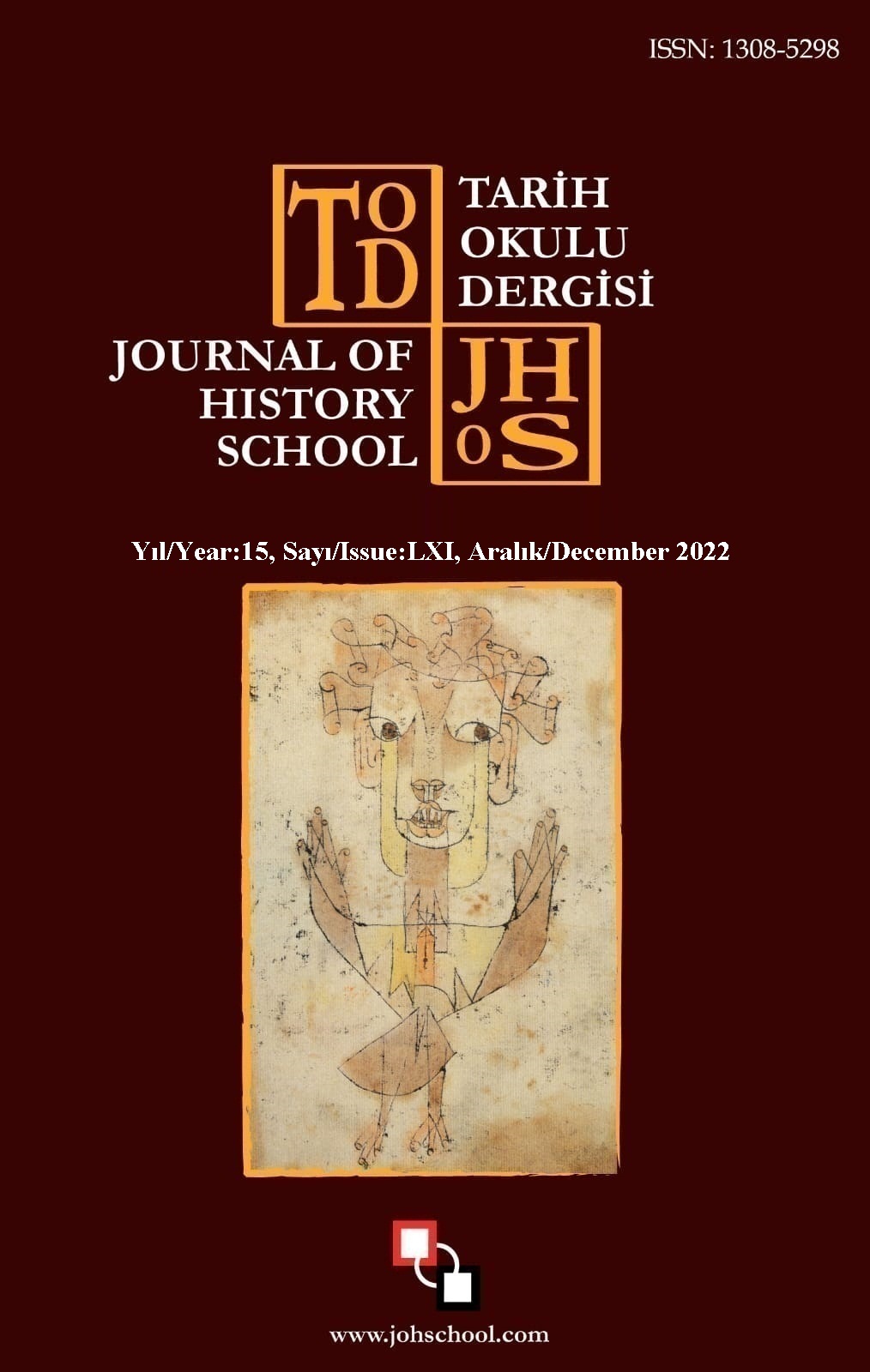İNGİLİZCE ÖĞRETMENLERİNİN VE İNGİLİZCE ÖĞRETMENLİĞİ PROGRAMINDA ÖĞRENİM GÖREN ÖĞRETMEN ADAYLARININ YAŞAM BOYU ÖĞRENME EĞİLİMLERİ (SAKARYA İLİ ÖRNEĞİ)
Author :
Abstract
Bu araştırmada, Sakarya ilinde görev yapan İngilizce öğretmenlerinin ve Sakarya Üniversitesi İngilizce Öğretmenliği Programında öğrenim gören öğretmen adaylarının yaşam boyu öğrenme eğilimlerinin bazı değişkenler açısından incelenmesi amaçlanmıştır. Araştırma, tarama (betimsel) modeli kullanılarak gerçekleştirilmiştir. Araştırmanın örneklemi, 2020-2021 eğitim-öğretim yılı 2. dönemde Sakarya ilinde görev yapan İngilizce öğretmenlerinden ve 2020-2021 eğitim-öğretim yılı bahar yarıyılında Sakarya Üniversitesi İngilizce Öğretmenliği Programında öğrenim gören öğretmen adaylarından oluşmaktadır. Araştırmaya Sakarya’da görev yapan 253 İngilizce öğretmeni ve Sakarya Üniversitesi İngilizce Öğretmenliğinde öğrenim gören 81 öğretmen adayı katılmıştır. Araştırmada veri toplama aracı olarak, Coşkun (2009) tarafından tasarlanan 6’lı likert tipinde olan “Yaşam Boyu Öğrenme Eğilimleri” ölçeği uygulanmıştır. Veriler SPSS paket programı kullanılarak analiz edilmiştir. Yaşam boyu öğrenme eğilimleri ölçeğinden elde edilen puanların demografik değişkenlere göre anlamlı farklılık gösterip göstermediğini anlamak için, bağımsız iki kategorilerde non-parametrik analizlerden Mann Whitney U testi ve bağımsız üç veya daha fazla kategorilerde non-parametrik analizlerden Kruskal Wallis H testi kullanılmıştır. Bulgular sonucunda, İngilizce öğretmenlerinin yaşam boyu öğrenme eğilimlerinin iyi düzeyde olduğu gözlemlenmiştir. Yaşam boyu öğrenme eğilimlerinin demografik (yaş, meslekte çalışma süresi, mezun olunan üniversite, mezun olunan üniversite ili, çalıştığı ilçe, çalıştığı okul türü, meslekte çalışma süresi) özelliklere göre anlamlı bir farklılık olmadığı belirlenmiştir. Ancak cinsiyet ve hizmet içi eğitime katılma durumu değişkenlerinde anlamlı bir farklılık tespit edilmiştir. İngilizce öğretmen adaylarının ise yaşam boyu öğrenme eğilimlerinin iyi düzeyde olduğu belirlenmiştir. Yaşam boyu öğrenme eğilimlerinin yaş, sınıf, öğretmenlik deneyimi, öğretmenlik deneyim okul türü, öğretmenlik deneyimi süresi değişkenlerine göre anlamlı bir farklılık olmadığı belirlenmiştir. Cinsiyet değişkeninde ise anlamlı bir farklılık tespit edilmiştir.
Keywords
Abstract
In this study, the aim of the research is to investigate the lifelong learning tendencies of English teachers working in Sakarya province and prospective teachers in Sakarya University English Language Teaching Program in terms of some variables. The research was carried out by using Scanning (Descriptive) Method. The sample of the study consists of the English teachers who work in Sakarya in the second term of the 2020-2021 academic year and the teacher candidates who study at the Sakarya University English Language Teaching Program in the spring semester of the 2020-2021 academic year. 253 English teachers working in Sakarya and 81 prospective teachers studying at Sakarya University English Language Teaching were participated in the study. In the research, "Lifelong Learning Tendencies" scale developed by Coşkun (2009), which is a 6-point Likert type, was used as a data collection tool. The data were analysed by using the SPSS package program. In order to understand whether the scores obtained from the Lifelong Learning Trends scale differ significantly according to demographic variables, the Mann Whitney U test, one of the non-parametric analyses in two independent categories, and the Kruskal Wallis H test from the non-parametric analyses in three or more independent categories were used. As a result of the findings, it was observed that the lifelong learning tendencies of English teachers were at a good level. It was determined that lifelong learning tendencies did not differ significantly according to demographic characteristics (age, duration of employment, university graduated from, province of graduation, district of employment, type of school, length of work in the profession). However, a significant difference was found in the gender and participation in in-service training variables. It was determined that the lifelong learning tendencies of the English prospective teachers are at a good level. It was determined that lifelong learning tendencies did not differ significantly according to the variables of age, class, teacher experience, teaching experience school type, and duration of teaching experience. A significant difference was found in the gender variable.





